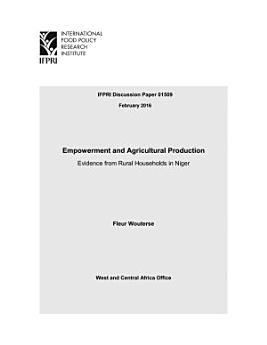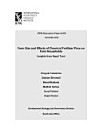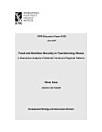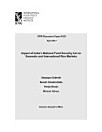Empowerment and agricultural production
Wouterse, Fleur Stephanie
2016년 2월 · IFPRI Discussion Paper 1권 · Intl Food Policy Res Inst
eBook
28
페이지
family_home
적용 가능
info
report검증되지 않은 평점과 리뷰입니다. 자세히 알아보기
eBook 정보
Niger is a landlocked Sahelian country, two-thirds of which is in the Sahara desert, with only one-eighth of the land considered arable. Nevertheless, more than 90 percent of Niger’s labor force is employed in agriculture, which is predominantly subsistence oriented. Since the great famines of the 1970s and 1980s, the country has pursued agrarian intensification through technological change to address challenges to the food security situation. However, this approach has failed to recognize that the main characteristic of the Sahelian part of West Africa is the intricate complexity of the social, environmental, and economic dimensions that differentially affect male and female rural dwellers. One example is the patrilineal tenure system, which under increased population pressure has led to the exclusion of women and youth from agriculture in some areas. The Women’s Empowerment in Agriculture Index (WEAI) indicates that access to land is one important dimension of empowerment. In order to assess the role of empowerment in agricultural production, we use new household- and individual-level WEAI data from Niger and regression analysis. Our results show that empowerment is important for agricultural production and that households in which adult individuals are more empowered are more productive. This means that other and possibly more effective pathways to agrarian intensification exist and important agricultural productivity gains could be made by empowering men and women in rural households.
이 eBook 평가
의견을 알려주세요.
읽기 정보
스마트폰 및 태블릿
노트북 및 컴퓨터
컴퓨터의 웹브라우저를 사용하여 Google Play에서 구매한 오디오북을 들을 수 있습니다.
eReader 및 기타 기기
Kobo eReader 등의 eBook 리더기에서 읽으려면 파일을 다운로드하여 기기로 전송해야 합니다. 지원되는 eBook 리더기로 파일을 전송하려면 고객센터에서 자세한 안내를 따르세요.










